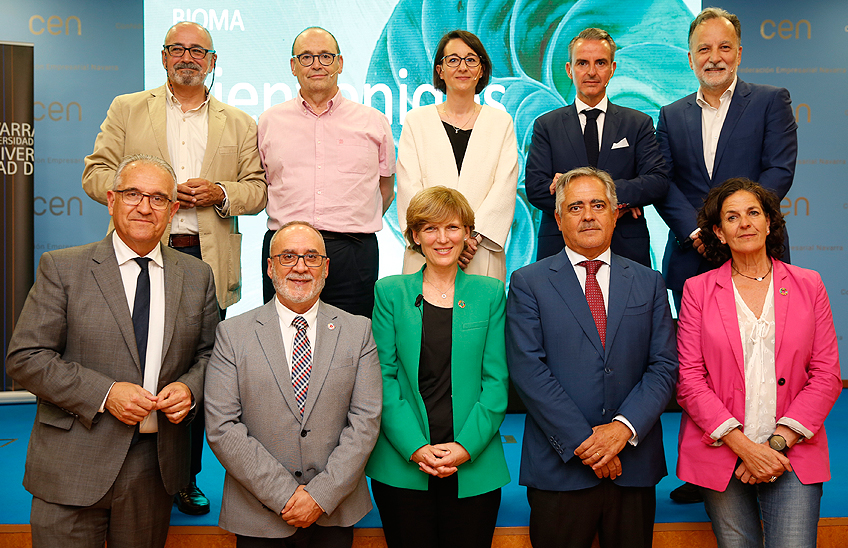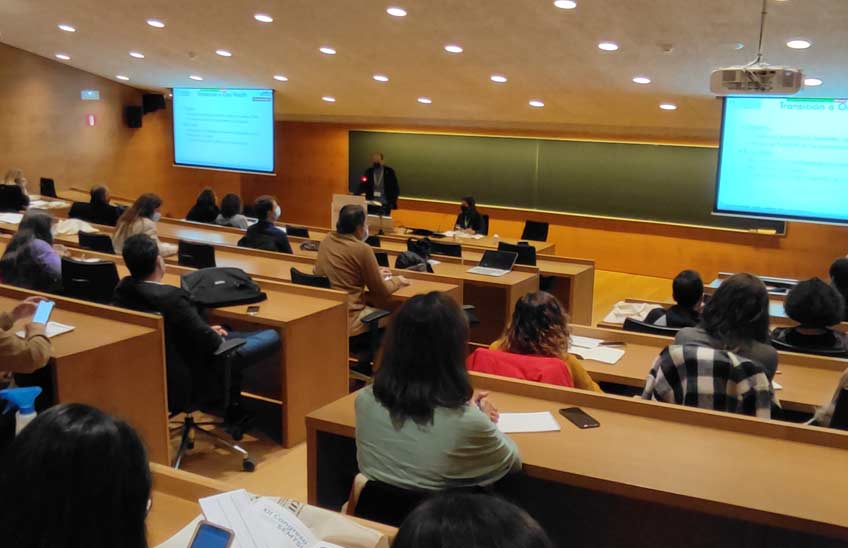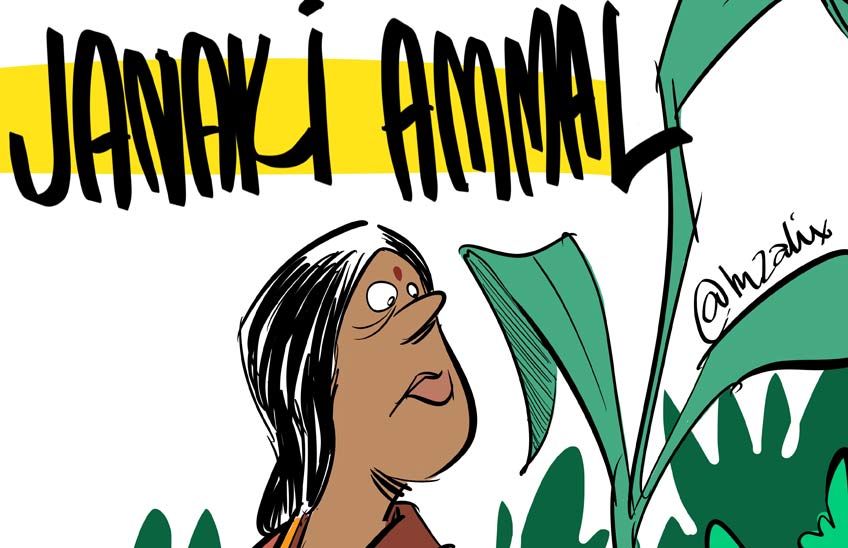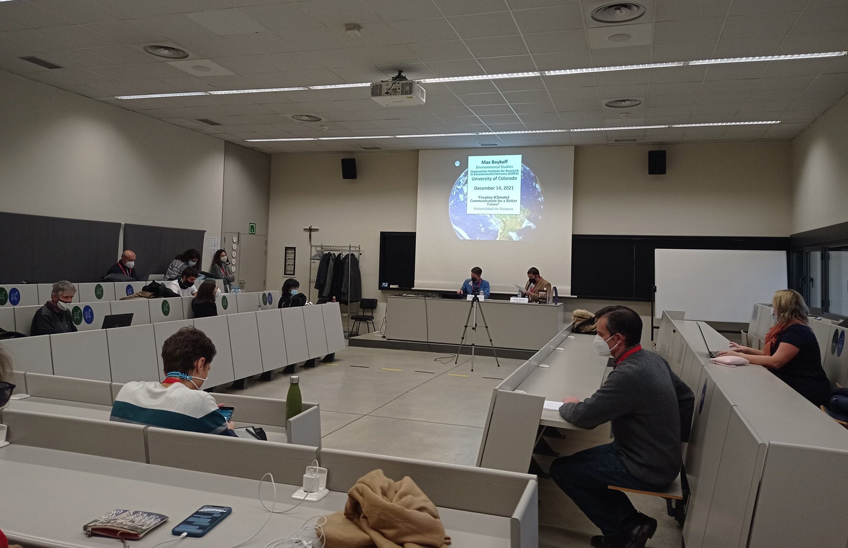A scientific study reveals the importance of owls' learning in their first days of life for their conservation
This work has been carried out by researchers from Biodiversity and Environment Institute of the University of Navarra, Parque Tierra Rapaz and the University of London.
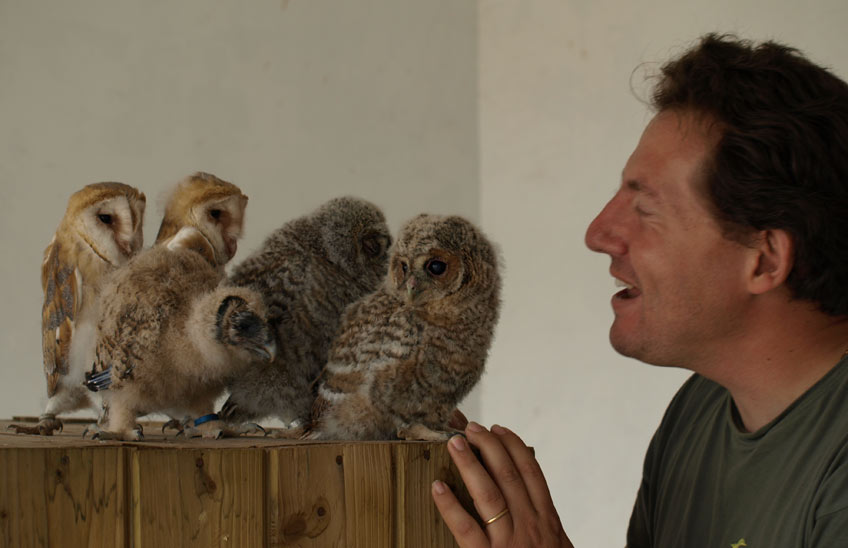
FotoCedida
/Luis Lezana, director of Tierra Rapaz and one of the researchers of the study.
26 | 01 | 2022
A group of scientists from the Biodiversity and Environment Institute from the University of Navarra, Parque Tierra Rapaz and the Royal Veterinary College of the University of London have studied how owls perceive the world around them and how this perception depends on the experiences these birds acquire in their first days of life.
The team of biologists studied the behaviour of 70 barn owl(Tyto alba) chicks in two groups, depending on the time they had spent with their biological parents or with humans. The main conclusion of this study is that from day 18 of life the birds recognised their caregiver and rejected other interactions.
"Owl chicks reared by their biological parents expressed fear of a human caretaker if he approached them, fleeing, refusing their food, hooting in alarm and even throwing their claws at him in a defensive attitude. They now only accepted owls as parents. On the contrary, before they reached that age, they accepted to be raised by the human being whom they followed some time later as an adoptive parent to interact, receive food and fly towards their call", says Luis Lezana, director of the Parque Tierra Rapaz and one of the researchers of this work.
This research reveals that between days 14 and 17 of owls' lives is the critical time when they record the information that will mark them for life, in terms of recognising who their parents are, what their home is and what dangers they may face.
"If we want a captive-bred owl to be successfully introduced into the wild, it is sufficient for it to be reared by owls until fill in on day 17 of its life or at least during days 14 to 17. From then on, it will identify its species and flee from predators such as humans," adds Lezana.
This study, which has been carried out over four years and whose results have been published in the international journal "Behavioural Processes", has made it possible to expand knowledge on this species, which could lead to its management and conservation.
"The behavior of an individual is a characteristic of its biology as important as its physiology or Anatomy and, like these, it must develop normally to ensure its survival and viability. In this study we have delved into the importance of the first days of development of the young on the behavior they will show later as adults, with direct implications for the conservation of this and other nocturnal raptors," says David Galicia, researcher of Biodiversity and Environment Institute of the University of Navarra.
Moreover, the researchers have also discovered that those objects that were present during breeding were recognised by these birds even in unfamiliar environments, which could favour the reintroduction of these species into the wild.
reference letter bibliographic
Lezana, L.; Hernández-Soto, R.; Díez-León, M.; Ríos, M.; Baquero, E.; and Galicia, D. (2022). The effect of early experiences in barn owl (Tyto alba) behaviour. Acquisition-expression time of neophobia and filial imprinting. Implications for management and conservation. Behavioural Processes,195,104569. https://doi.org/10.1016/j.beproc.2021.104569.

